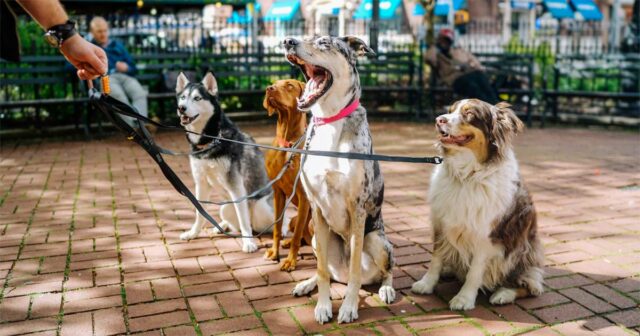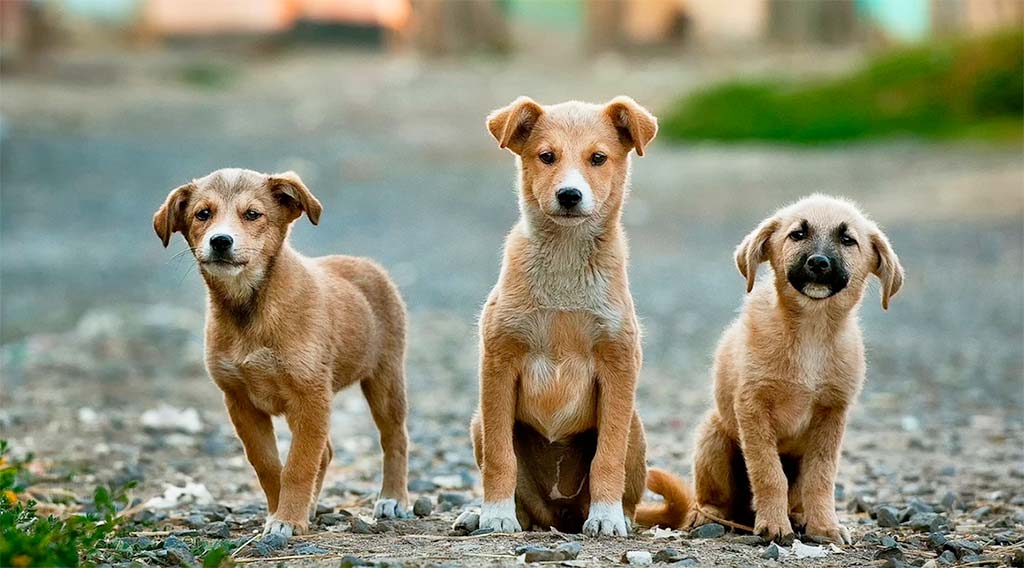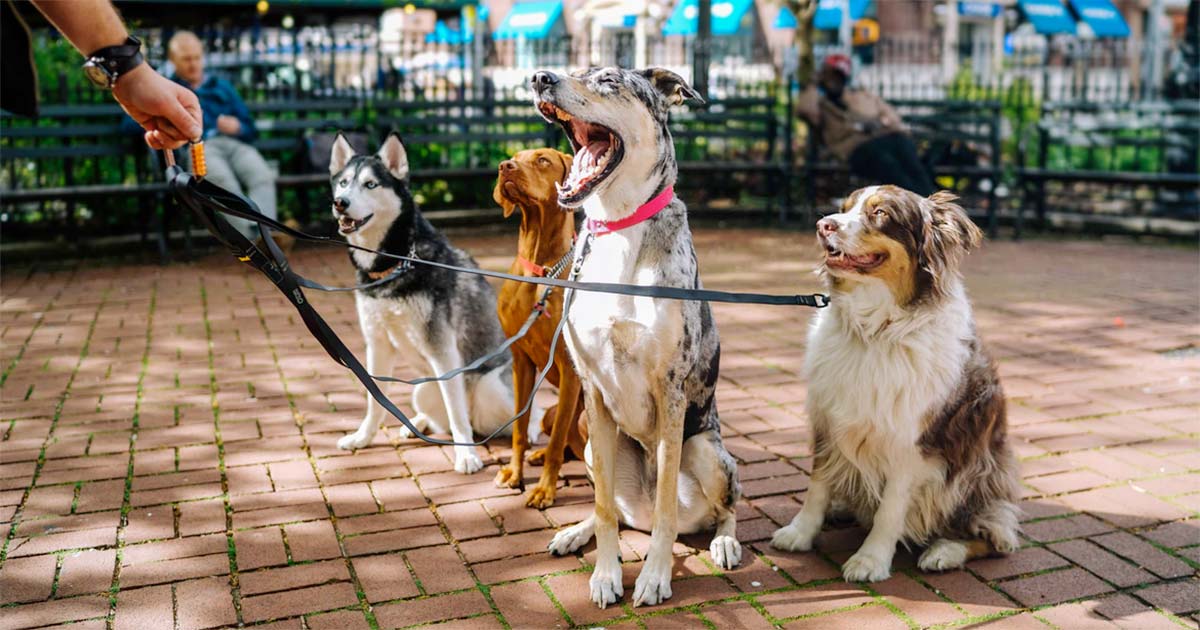
When an alpha dog dies, or can no longer be the alpha dog, there is competition among the other dogs to take his place. There is a rearrangement of social status, and some of the dogs may challenge each others’ positions.
Dogs are pack animals with a highly developed social system and hierarchy within the pack so when the leader can no longer lead there will always be a transition period.
Table of Contents
- What is an Alpha Dog?
- What are the Different Roles in a Pack?
- What Happens When an Alpha Dog Dies?
- Importance of Social Status in Dogs
- How to Cope with Losing the Leader in Your Dog Pack
- How to Establish a New Alpha Dog in Your Pack

What is an alpha dog and how does it affect your pack dynamic when you have multiple dogs in your home?
Have you ever wondered why some dogs seem to be naturally more confident and in control than others? These are what we call alpha dogs. An alpha dog is the leader of the pack, the one in charge. Most importantly, an alpha dog is a calm, assertive dog.
You may not have realized it, but if you have more than one dog in your home, chances are one of them is an alpha dog. And that means that you need to be the alpha too! As the owner of multiple dogs, you must establish yourself as the leader of the pack.
That doesn’t mean being aggressive or mean – instead, it means being calm and confident. Your dogs will take their cues from you, so if you’re stressed out, they will be too.
But what happens when the alpha dog in your pack dies?
It can be tough to lose an alpha dog. Suddenly, the dynamic of your pack has changed and your other dogs may be feeling a little lost. Here are some tips for dealing with this difficult situation.
What are the different roles in a pack and how are they determined?
In any dog pack, there is a strict hierarchy that establishes the different roles within the group. At the top of the pack is the Alpha, who is the leader and makes all of the decisions for the group. The alpha dog can be either male or female.
The Alpha is oftentimes the biggest and strongest dog in the pack, but not always. They use their size, strength, or confidence to assert their dominance. Below the Alpha is the Beta dogs, who act as second-in-command and help to enforce the Alpha’s decisions. The Betas are usually smaller and weaker than the Alpha, but they make up for it with their loyalty and obedience.
The rest of the pack is made up of Omega dogs, who have the lowest ranking in the hierarchy. Omegas are typically shy and submissive, and they often defer to the Alpha’s decisions.
While all dogs have a place in the hierarchy, not all of them aspire to be at the top. But sometimes, circumstances change and a dog must step up to fill the role of Alpha. This can happen if the current Alpha dies or is no longer able to lead the pack because of age or sickness.
What happens when an alpha dog dies or is no longer able to lead?
When an alpha dog dies, it can be devastating to the pack. The loss of a leader can throw the whole dynamic off balance and leave dogs feeling lost and confused. It’s important to remember that each dog will react differently to the death of the alpha and may need extra support and guidance during this time.
Without a strong leader to keep them in line, the other dogs may start fighting for dominance. This can lead to serious injury or even death if the fights get out of hand. If an alpha dog is replaced, the new leader must be able to establish themselves quickly to avoid these problems.
With a strong and stable leader in place, the pack will be much better equipped to handle whatever challenges come their way.

The importance of social status in dogs and how it affects their behavior
Social status is important to dogs. It affects their behavior and how they interact with other dogs. For example, a dog with a high social status may be more assertive and aggressive, while a dog with a low social status may be more submissive and timid.
Dogs use a variety of cues to assess each other’s social status, including body language, vocalizations, and scent. In general, the higher-ranking dog will initiate interactions, while the lower-ranking dog will defer to the higher-ranking dog.
This can be seen in things like play behaviors – the lower-ranking dog will let the higher-ranking dog initiate play, and will avoid doing things that could be interpreted as challenging or threatening, like making direct eye contact or trying to take a toy away.
It’s important to remember that social status is not static – it can change over time based on a variety of factors. And is especially impacted when the pack leader dies.
How do you cope with the loss of a leader in your dog pack?
One of the most difficult things a dog owner can go through is the loss of a leader in their pack. Without a strong alpha, the pack can quickly fall into chaos, with dogs fighting for dominance and acting out in ways that are harmful to both themselves and their owners.
If you find yourself in this situation, it is important to take action quickly. The first step is to establish yourself as the new leader. Learn how to become the alpha to your pack here. This means being firm and consistent in your commands, and making it clear that you are in charge.
It is also important to provide plenty of structure for your dogs, including regular exercise, feeding times, and bedtimes. By establishing yourself as the alpha and providing structure for your pack, you can help them to cope with the loss of their leader until a new one emerges.
Tips for coping with the loss of an alpha dog in your pack:
- Give each dog plenty of individual attention. This is especially important for dogs who were close to the alpha. They will likely need extra reassurance and support during this time.
- Be patient. It will take time for the pack to adjust to the new dynamic.
- Be prepared for changes in behavior. Dogs may become more timid or aggressive without a strong leader in place.
- Provide plenty of opportunities for exercise and play. This will help to release any built-up energy and tension within the group.
- Establish a new leader as quickly as possible. This will help to avoid any fighting or confusion within the group.
How to Establish a New Alpha Dog in Your Pack
It can be difficult to establish a new alpha dog when your old alpha dog dies. But usually, a new alpha will naturally emerge from the pack. Here are some tips from Ceasar Milan to help you through the process:
1. Start by creating a calm and relaxed environment. Dogs are more likely to assert themselves when they feel anxious or stressed, so it’s important to create a calm atmosphere in your home. This means no yelling, no roughhousing, and no sudden changes in routine.
2. Keep mealtimes calm and relaxed. Mealtimes should be a time for bonding, not for competing for food. Dogs who feel anxious about their next meal are more likely to challenge the alpha dog for control.
3. Encourage good behavior with positive reinforcement. Dogs who are behaving well should be rewarded with treats, petting, and praise. This will help them to associate good behavior with positive reinforcement.
Losing an alpha dog can be difficult for both humans and dogs alike. But by following these tips, you can help your pack to adjust and thrive despite the change.








